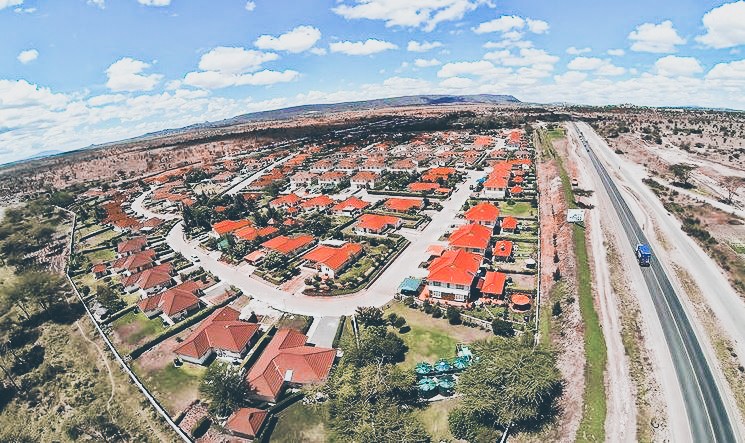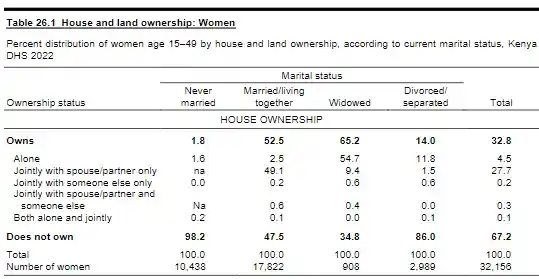There are significant gender disparities in land ownership in rural and urban areas of Kenya, as findings from the Kenya Demographic and Health Survey (KDHS) 2022 reveal.
While many Kenyan men own houses and land, women continue to face challenges in accessing and securing ownership rights to these vital assets.
Housing Ownership Disparities
According to the KDHS 2022 report, 45% of Kenyan men aged between 15-49 own a house. However, only 35% of them own the house alone, with 9% owning jointly with their wife or someone else.
On the other hand, only 5% of women own a house alone, while 28% own a house jointly with their husband or another individual. This highlights a significant gender disparity in housing ownership.
Moreover, among women who own houses, only 9% have a title deed or any other government-recognized document in their name, while the majority of them lack such documentation (73%). Title deeds are crucial for establishing legal ownership and protection of property rights.
The report also highlights that house ownership increases with age, with women aged 45-49 being the highest group of homeowners at 63%. Additionally, women in rural areas are more likely to own a house (44%) compared to women in urban areas (17%). However, urban women are more likely to have title deeds for their properties than rural women.
Land Ownership Disparities
The KDHS report reveals that 31% of men aged 15-49 own agricultural land, while 8% own nonagricultural land. Among women in the same age group, 25% own agricultural land, and only 7% own nonagricultural land. The ownership of agricultural land by women is critical as it serves as a foundation for income generation and collateral for credit.
The survey highlights that the majority of women who own agricultural land lack title deeds (62%). Only 13% of women with agricultural land have a title deed in their name, while urban women with agricultural land are three times more likely to have their name on the title deed compared to their rural counterparts.
The likelihood of women having a title deed for agricultural land increases with wealth, with 33% of women in the highest wealth quintile having their name on the title deed, compared to only 4% in the lowest quintile. This disparity indicates the challenges faced by women in lower-income brackets in accessing secure land tenure.
Importance of Land Ownership for Women’s Empowerment
The ownership and control of land and property, including houses, agricultural land, and nonagricultural land, have far-reaching implications for women’s economic empowerment and well-being. The ownership of assets gives women a sense of security, enhances their economic status, and increases their bargaining power within the household.
Furthermore, ownership of assets, including land, offers protection to women in cases of marital dissolution or abandonment, reduces their vulnerability to violence and discrimination, and positively influences their position within the household.
The KDHS 2022 report highlights the gender disparities in land ownership in Kenya, with men having higher rates of property ownership compared to women.
The findings underscore the need for comprehensive policies and interventions that promote gender equality in land ownership, enhance women’s access to land, and strengthen their property rights.





